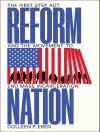This book examines how Muslim communities in the Netherlands perceive and experience extremism, counter-radicalisation policies, and Islamophobia. It is based on the findings of two original qualitative research investigations conducted in the Netherlands, in which thirty scholars, imams, mosque board members, and representatives of Islamic organisations were interviewed. The book delves into topics such as the politicisation of the Dutch media, misunderstandings about ‘radicalisation’ and how they contribute to securitisation, and how Dutch Muslims have been confronted with the dilemma of dealing with radicalisation on their own, while also facing further vilification, securitisation, and Islamophobia, all of which continue to be issues. Additionally, the study examines the significance of ‘radical Salafi’ ideology and recruitment techniques as seen by Dutch Muslim communities.
Daftar Isi
Chapter 1: Introduction.- PART 1: Understanding Radicalisation, Securitisation and Islamophobia in the Netherlands.- Chapter 2: Migration, Islamophobia and securitisation in The Netherlands.- Chapter 3: Radicalisation as a social phenomenon.- PART 2: The Politicised Media Discourse.- Chapter 4: Trial by Media: “Creating a spectacle”.- Chapter 5: Islamophobia as Electoral Tool: “Populist action”.- Chapter 6: Helicopter Governance: “The analysts only look at the numbers”.- PART 3: The Dutch Muslim community.- Chapter 7: “I’m Muslim and all, but I don’t want ‘that’ Moroccan label”.- Chapter 8: Qur’an Education in a Dutch context: “Nobody is ‘woke’”.- Chapter 9: Self-policing: “Mosques don’t want to have a blemished name”.- Chapter 10: Conclusion.
Tentang Penulis
Liselotte Welten is an independent researcher based in the Netherlands.
Tahir Abbas is Professor of Radicalisation Studies at the Institute of Security and Global Affairs at Leiden University in The Hague, the Netherlands.












